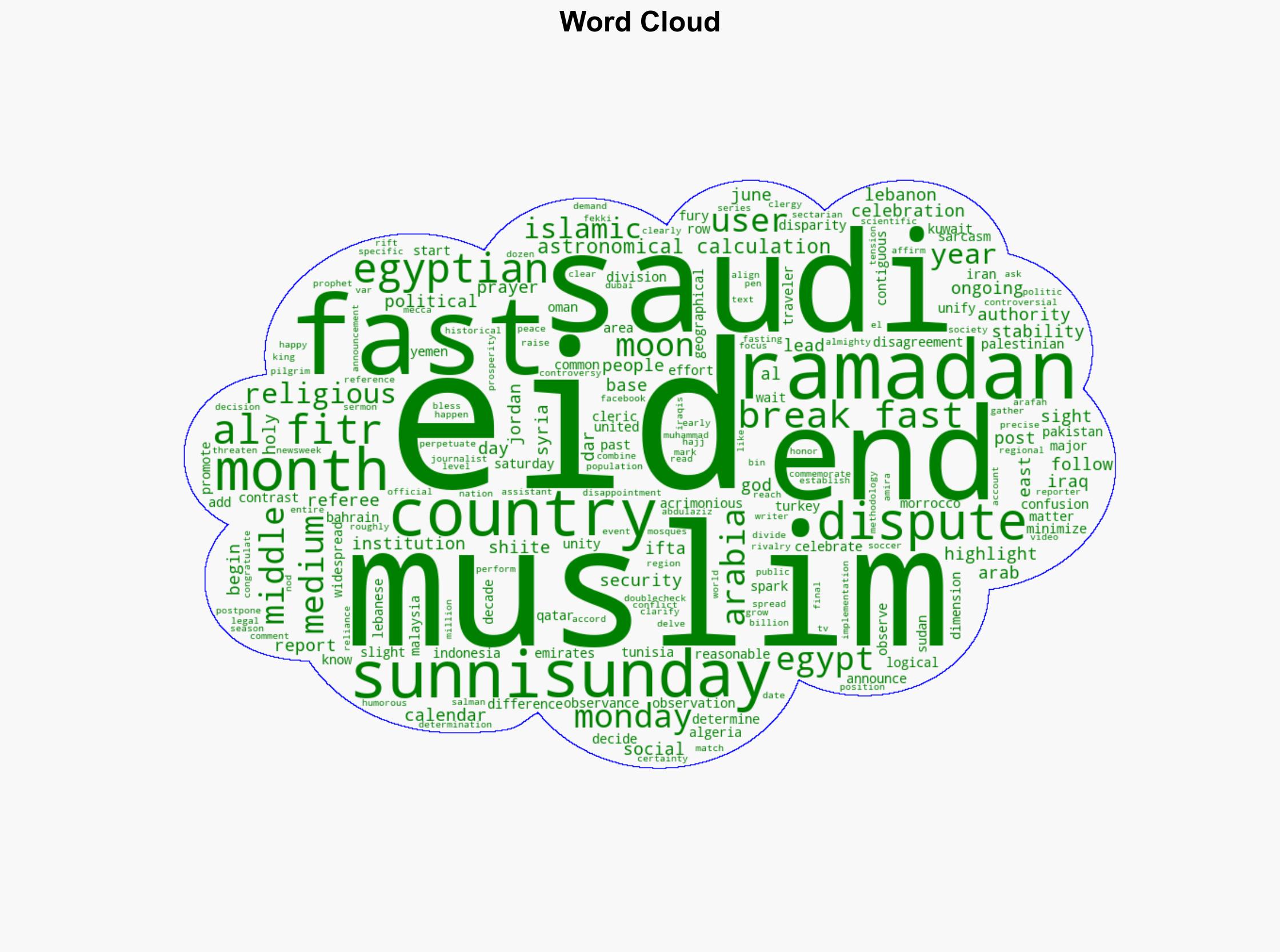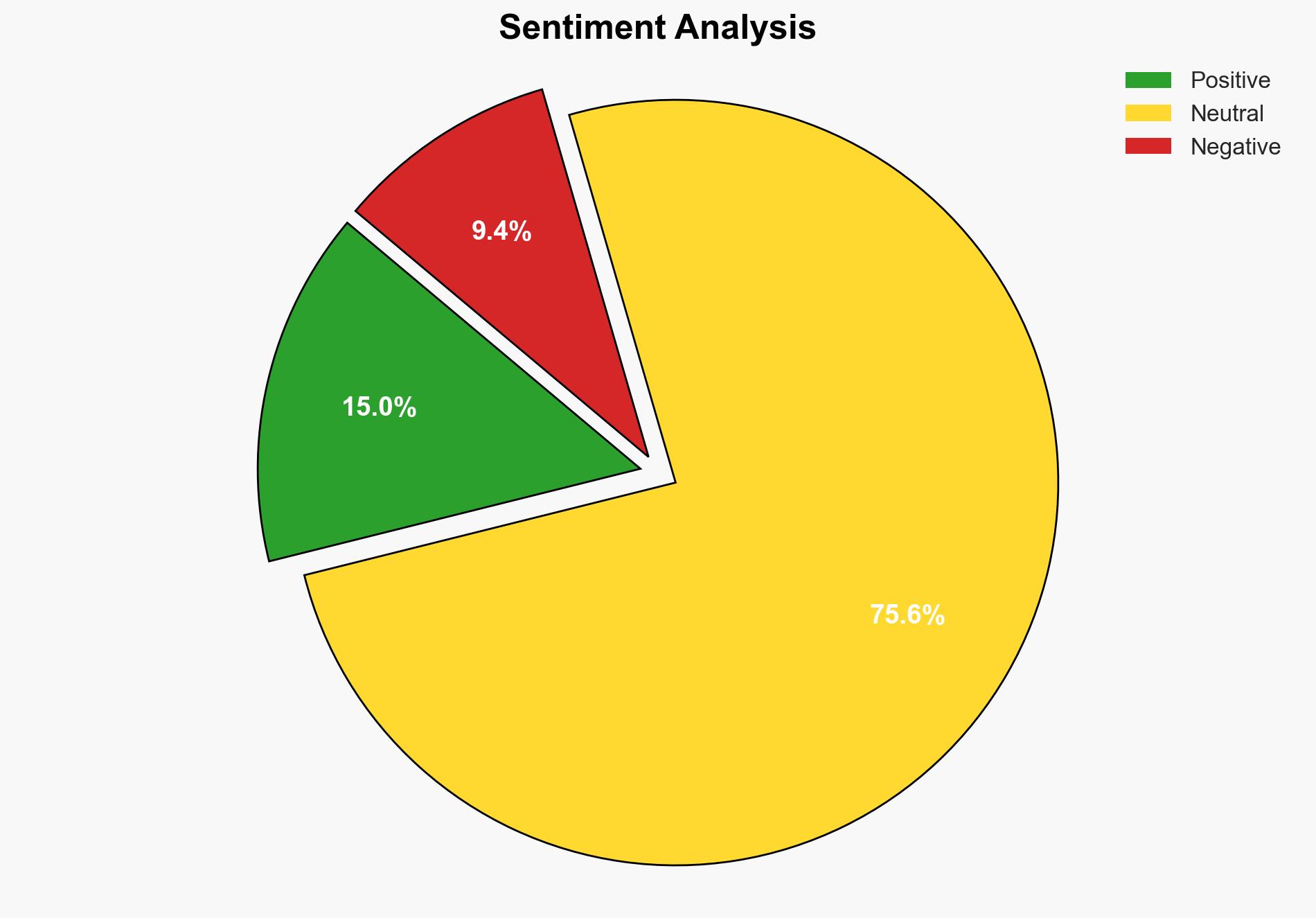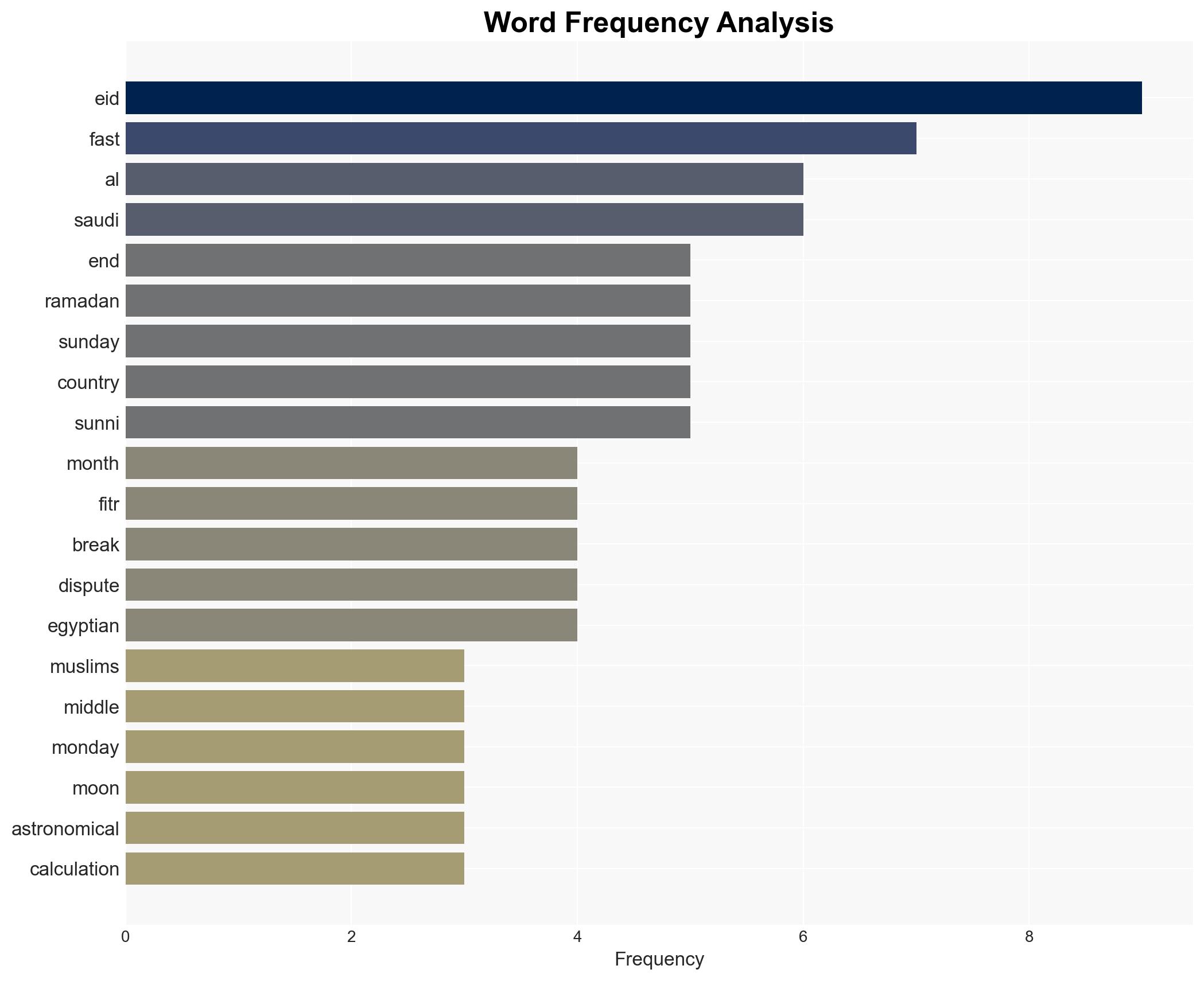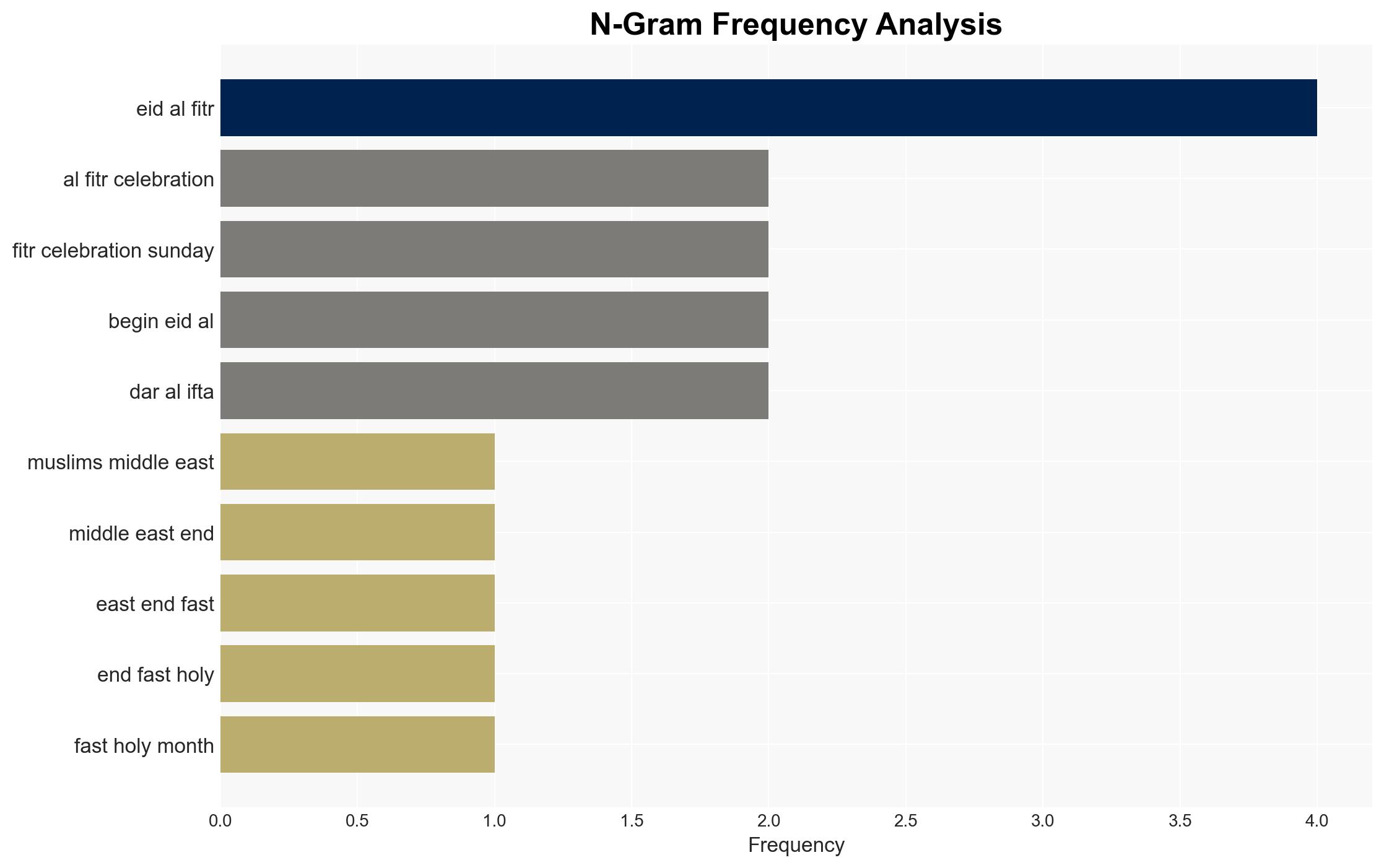Fight Over Ending Ramadan Sparks Fury in Arab World – Newsweek
Published on: 2025-03-31
Intelligence Report: Fight Over Ending Ramadan Sparks Fury in Arab World – Newsweek
1. BLUF (Bottom Line Up Front)
The recent disagreement over the end of Ramadan and the start of Eid al-Fitr has highlighted significant divisions within the Muslim world, particularly between Sunni and Shiite communities. The dispute, rooted in differing methods of determining the end of the holy month, has exacerbated existing religious and political tensions across the Middle East. This situation poses risks to regional stability and could impact diplomatic relations and social cohesion within affected countries.
2. Detailed Analysis
The following structured analytic techniques have been applied for this analysis:
General Analysis
The primary issue centers around the disagreement on whether to end Ramadan based on moon sighting or astronomical calculations. Countries such as Saudi Arabia, the United Arab Emirates, and the Palestinian Authority opted to celebrate Eid on Sunday, while others like Iran, Egypt, and Syria extended fasting until Monday. This division is not new but has gained significant attention due to the heightened use of social media, where sarcasm and criticism have been rampant. The situation underscores the broader Sunni-Shiite divide, with implications for regional alliances and internal cohesion.
3. Implications and Strategic Risks
The ongoing dispute poses several risks:
- National Security: Heightened tensions could lead to unrest or violence, particularly in countries with mixed Sunni-Shiite populations.
- Regional Stability: The division may strain diplomatic relations between countries with opposing stances on the issue.
- Economic Interests: Prolonged instability could deter investment and affect economic growth in the region.
4. Recommendations and Outlook
Recommendations:
- Encourage dialogue between religious leaders to establish a unified approach to moon sighting and astronomical calculations.
- Promote educational initiatives to increase understanding and tolerance among different sects.
- Support regional diplomatic efforts to address underlying political and religious tensions.
Outlook:
Best-case scenario: A consensus is reached on moon sighting practices, reducing tensions and fostering greater unity.
Worst-case scenario: The dispute exacerbates sectarian divides, leading to increased instability and potential conflict.
Most likely outcome: The issue remains a point of contention, with periodic flare-ups but no significant escalation.
5. Key Individuals and Entities
The report mentions several significant individuals and entities:
- Salman bin Abdulaziz
- Amira El Fekki
- Dar al-Ifta





